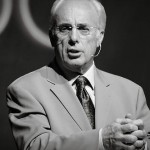University of Mobile Christmas Spectacular 2012
Monthly Archives: December 2012
Reformed v. Non-Reformed Theology: The Central Difference
 – John Hendryx of monergism.com writes:
– John Hendryx of monergism.com writes:
The central difference between Reformed and non-Reformed theology is that the former affirms that Jesus Christ is SUFFICIENT to save to the uttermost while later believes that while Jesus is NECESSARY, the sufficiency of Christ in salvation. There is nothing more essential to its position and this is what sets it apart from other all other theologies.
The word “sufficient”, in this case, means that Jesus Christ meets all the conditions for us that are necessary for our salvation, not only some of the conditions. It further means what Jesus does for us on the cross meets all of God’s requirements for us, including giving us the new heart which is needed to believe and obey (Ezekiel 36:26).
Evangelicalism broadly believes in an insufficient Jesus whose love is conditional, that is, that we must first meet a condition if He will help/love us. Can you imagine a parent who saw their toddler run out into traffic and first required them to meet a condition before the parent would run out to save them from oncoming traffic? No, no, no… parental love is unconditional and would run out at the risk of their life to save the child regardless of the child’s will at the time because the parent loves his child and knows better than the child what is good for him/her. If this is true about love in everyday life, how much more is it true of God. No person would say that the parent who required the child to first meet a condition was more loving. That is why the argument about the necessity of free will to have true love is fallacious. In the Bible, God gives conditions, but in Jesus He meets all the conditions for us.
“God knows we have nothing of ourselves, therefore in the covenant of grace he requires no more than he gives, but gives what he requires, and accepts what he gives.” ? Richard Sibbes, The Bruised Reed
Why does God allow so much suffering and evil?
 “Is a trumpet blown in a city, and the people are not afraid? Does disaster come to a city, unless the Lord has done it?” – Amos 3:6
“Is a trumpet blown in a city, and the people are not afraid? Does disaster come to a city, unless the Lord has done it?” – Amos 3:6
In light of the events of the last few days, I re-watched a message from the West Coast Ligonier Conference (2008) by Dr. John MacArthur on the question of evil and suffering in this world. It was a very good use of an hour as it fixed my heart and mind on the truth claims of the Bible regarding God’s Sovereignty over evil in this world. I very much recommend this teaching found here:
Here are some notes I made as I watched:
WHY DOES GOD ALLOW SO MUCH EVIL AND SUFFERING?
FOUR FORMS OF EVIL:
NATURAL EVIL
MORAL EVIL – Personal sin (transgression)
SUPERNATURAL EVIL – Sophisticated corrupt spiritual identities that seek to torment, entice, deceive and seduce (heresy and false religions have their source in the demonic – the doctrine of demons – 1 Tim 4)
THE EVIL OF HELL (eternal punishment)
Three statements:
1) Evil exists.
2) God exists.
3) God wills evil to exist (He takes full responsibility for all that occurs). If He did not permit its existence, it would not be here.
Evil occurs because God, who could have prevented it, permits it. The permission of evil is under the control of God. To say that it is permitted is to underline the point because God is not Himself evil and could not be the author of evil (James 1:13). It is vital to stress this. But it is not as if, when evil occurs, God temporarily loses control of the universe that He has created and sustains and governs.
“…though Christians face the difficulty of explaining the presence of evil in the universe, the pagan has a problem that is twice as difficult. Before one can even have a problem of evil, one must first have an antecedent existence of the good. Those who complain about the problem of evil now also have the problem of defining the existence of the good. Without God there is no ultimate standard for the good.” – R. C. Sproul
In order to try to get around what some people think to be a poor reflection on God regarding point number 3, two main theological errors have been put forward.
1. Process Theology – in simple terms, the idea that God is learning and growing and developing as He reacts to the events of time.
2. Openness Theology – the idea that the future does not yet exist and so not even God knows it. However this goes against clear statements of Scripture. God knows the end from the beginning, is omniscient, and this is why such much of the Bible is prophetic in nature.
Westminster Confession of Faith: God from all eternity did by the most wise and holy counsel of his own will, freely and unchangeably ordain whatsoever comes to pass; yet so as thereby neither is God the author of sin; nor is violence offered to the will of the creatures, nor is the liberty or contingency of second causes taken away, but rather established.
Continue reading
